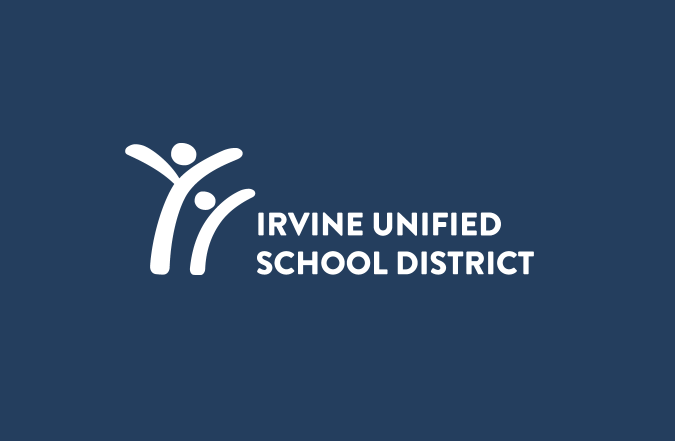
A recent legal settlement between the state and the American Civil Liberties union over student fees has brought clarity to a complex issue, but it will make school districts more dependent on local donations to preserve educational opportunities for students, writes Superintendent Gwen Gross in a letter to the community. "In short, we are witnessing a paradigm shift in California, and we must do our best to adapt and remain in legal compliance," Dr. Gross writes. "I say this not as a dire warning or even as a fundraising pitch, though you will certainly hear more of the latter. I point out this fact because it is critically important that parents, staff and community members understand why some programmatic changes must be made without delay." Here's the full text of the superintendent's letter, which was emailed to local families on Thursday.
Dear IUSD community member:
Since its inception, the Irvine Unified School District has strived to offer the most comprehensive array of enrichment programs, athletics and extracurricular activities, particularly those deemed the most valuable by our community. And while we have generally offset the cost of uniforms, transportation and essential equipment through parent contributions, it has been our ongoing practice to promote inclusivity by waiving fees for students whose families declined to pay.
This system will no longer be permissible, according to a recent legal settlement between the American Civil Liberties Union and the State of California. As a result, our district must now rely heavily on voluntary donations to preserve educational opportunities for students.
Allow me to provide a bit of context. In September 2010, the ACLU filed a lawsuit against the state over charges and deposits imposed on public school students, citing examples from 32 districts. A few months later, the case ended with a tentative settlement agreement.
This agreement, to be codified in subsequent legislation, affirms that students and parents cannot be required to pay money to gain access to educational activities, nor can they be charged for materials and supplies necessary to participate in educational activities. “Educational activities” has been clearly defined to include extracurricular offerings such as music, sports and some clubs. Moreover, the rules described above apply to all affiliated groups supporting district and school programs, including PTAs, boosters and foundations.
Our district, which began analyzing student fees even before the ACLU filed its suit, is pleased to finally have clarity on what has become a very complex issue in California. And we do agree that some practices have been inconsistent with the state’s promise of a free public education. Nevertheless, this landmark settlement will have the unintended consequence of hamstringing districts and eliminating many popular programs, particularly in this era of budget cuts.
It should be noted that the law does not prohibit schools and districts from requesting voluntary donations, and that’s how IUSD intends to preserve some of its more vital educational offerings. On a case by case basis, our district and its community partners will be asking for voluntary contributions to help maintain the programs that matter to you, ensuring our students have continued access to opportunities above and beyond what the state is willing to fund. We hope you will support this effort.
An example that immediately comes to mind is summer school. While some districts have opted to eliminate their high school summer programs entirely, we will do our very best to preserve this opportunity by asking for donations from participating families. Course descriptions will feature a “suggested donation” amount to help cover the cost of the instructor, materials and facilities. Again, a contribution will not be required for enrollment, and families that agree to donate may do so at any amount they choose. But should donation levels be insufficient to fund the entire summer school program, some courses will unfortunately not be offered, with families receiving refunds for any contributions made while registering for a canceled course.
A number of extracurricular activities will operate in this manner, buoyed by the generosity of our community. Other programs will be relinquished by the district, but that doesn’t necessarily mean they’ll vanish entirely. Summer enrichment courses for elementary schoolchildren, for example, will be run independently by the Irvine Public Schools Foundation.
In short, we are witnessing a paradigm shift in California, and we must do our best to adapt and remain in legal compliance. I say this not as a dire warning or even as a fundraising pitch, though you will certainly hear more of the latter. I point out this fact because it is critically important that parents, staff and community members understand why some programmatic changes must be made without delay. In addition, we want to make sure our families know how to preserve educational opportunities for students, as well as what options are available for those who believe they’ve been charged an impermissible fee. That information will be posted on a new district webpage at www.iusd.org/student-fee-info as soon as the Legislature takes action, and regular updates will follow.
These are challenging times, exacerbated by a stubborn economy that is recovering far too slowly. Yet we remain incredibly fortunate to have engaged and committed partners, including IPSF, our PTAs and our booster clubs, and I have tremendous confidence that our community will continue to lead the way in the pursuit of academic excellence, ensuring that tomorrow’s leaders aren’t shortchanged by the budgetary issues we face today.
As always, thank you for supporting education in Irvine.
Sincerely,
Dr. Gwen E. Gross Superintendent of Schools